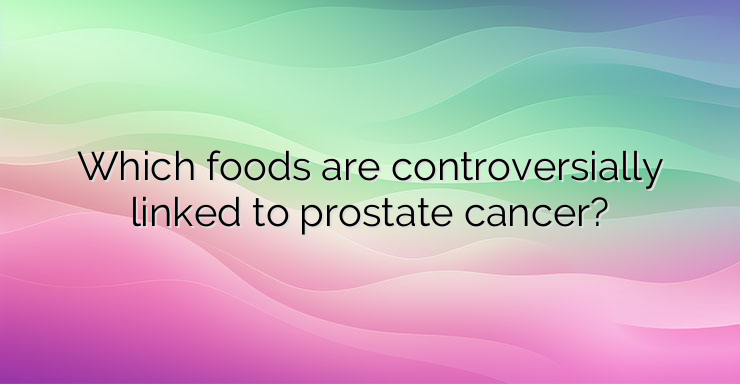For some types of foods and dietary supplements, the data related to the risk of prostate cancer are very conflicting. Based on this information, consultation with a physician is recommended to discuss the best dietary option for a given patient. Fish and Omega-3 Fatty Acids Certain types of fatty acids known as omega-3s may help reduce the risk of developing prostate cancer. Omega-3 is found in some fish, such as: Sardines; Tuna fish; Mackerel; Trout; Salmon According to a 2013 study, men who have high concentrations of omega-3 fatty acids in their blood are more likely to develop prostate cancer. However, another 2015 review stated that the study did not actually find a direct link between increased omega-3 intake and increased risk of prostate cancer. A 2017 systematic review found that there is currently insufficient evidence to support that omega-3 intake is associated with prostate cancer risk, and further research is needed on this topic. Additionally, in 2019, researchers from the Intermountain Healthcare Heart Institute presented two new studies on omega-3 fatty acids at the 2019 American Heart Association Scientific Sessions. Their research found that omega-3 intake is associated with prevention of fatal heart disease, and also omega-3 intake does not appear to be associated with an increased risk of prostate cancer. Folic acid Folic acid is found in many foods, such as: Vegetables; Bob; Whole grains; Enriched breakfast cereals; It can also be taken as a dietary supplement Older research from 2009 tracked people taking folic acid supplements to help prevent the development of colorectal cancer. Over a 10-year follow-up period, it was found that taking folic acid supplements may increase the risk of prostate cancer. A 2012 systematic review and meta-analysis reviewed studies on folic acid supplementation and cancer risk. Prostate cancer was found to be the only type of cancer in which folic acid supplementation appeared to increase the risk of occurrence, however this increased risk was minimal. Dairy products Calcium has a number of important health benefits. Some studies have linked dairy products or diets high in calcium with an increased risk of prostate cancer. However, studies are conflicting and this risk is not associated with normal dietary calcium intake. References: 1. Healthline. Are Sardines Good for You? 2. The AHA Scientific Sessions in Philadelphia, Pennsylvania aim to serve the latest cutting-edge science and education for those in the fields of cardiovascular clinical, population, or basic science 3. National Library of Medicine. Fish-Derived Omega-3 Fatty Acids and Prostate Cancer:A Systematic Review 4. National Center for Biotechnology Information. Cancer risk with folic acid supplements: a systematic review and meta-analysis


Leave a Reply